Situated at Gandhi Chowk, Jaisalmer, The Thar Desert Museum was established on 6th December 2006 by Mr Laxminarayan Khatri with the support of the then-District Collector Shri KK Pathak. The museum highlights the special identity and culture of the Thar desert region through its display of several folk arts and crafts, turbans, musical instruments, fossils etc from the area.
The museum showcases the geological history of the Thar Desert through the display of sea fossils dating back millions of years, telling the story of how the sea turned into the great Thar Desert. Apart from this, details about local lifestyles and cultures are given through displays of information about specific customs followed during birth, marriage, death, food cultures, crafts, costumes, etc. Various ornaments used to decorate beasts of burden like horses and camels, historical utensils, printing blocks and locks are also displayed along with traditional musical instruments played by Manganiyar, Langa, and Gipsy tribes and storage containers made of mud and paper mâché dating back three hundred years.
The museum showcases various aspects of the Jaisalmer princely state’s history. The reign of Bhati Rajputs over the princely state of Jaisalmer has been showcased through the display of some original photographs of royalty, information on wars fought by the rulers, handmade weapons along with important state documents, coins, postcards, etc. Apart from this, various paintings of romance and religious icons painted in the Jaisalmer style have also been displayed.
Jaisalmer has had a history of international trade with Arabia and Europe in opium, spices, jewellery and ghee. Opium used to be an essential part of the local culture in the Thar especially during special occasions such as wedding and death ceremonies. A unique display at the museum showcases a typical scene of opium consumption at important occasions.
This content has been created as part of a project partnered with Royal Rajasthan Foundation, the social impact arm of Rajasthan Royals, to document the cultural heritage of the state of Rajasthan.
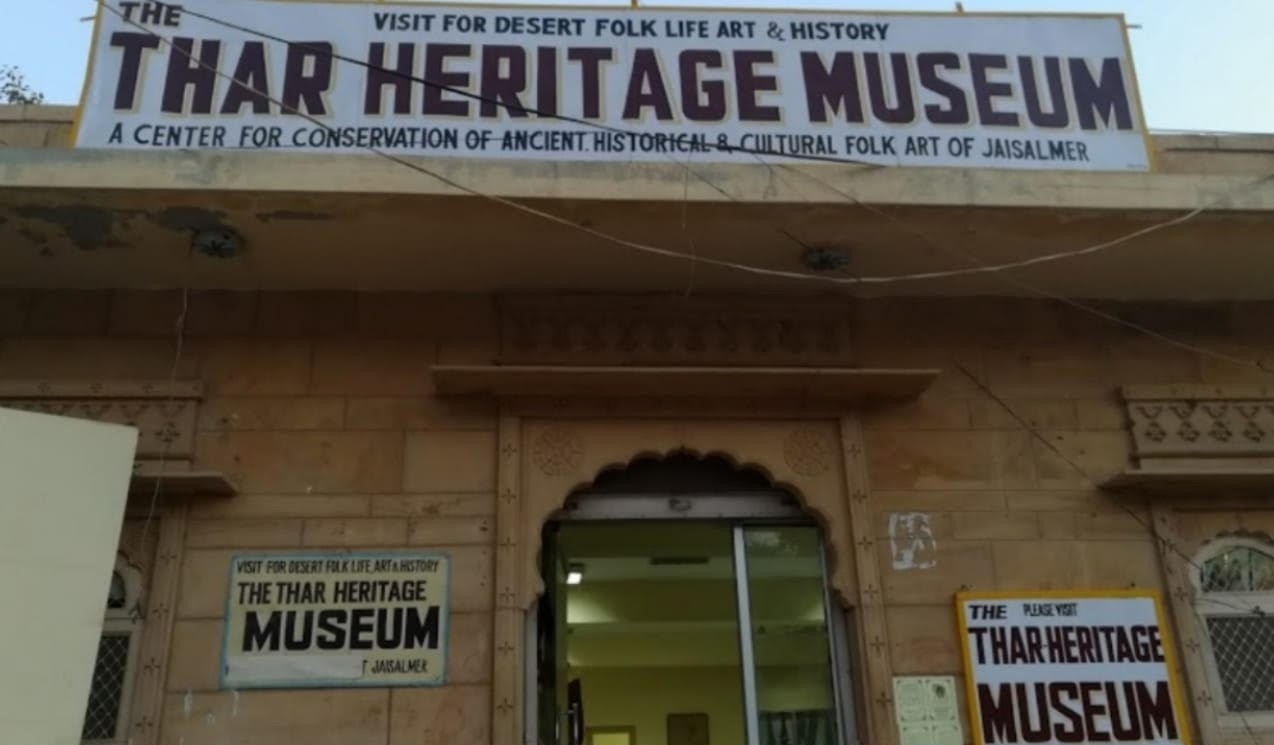
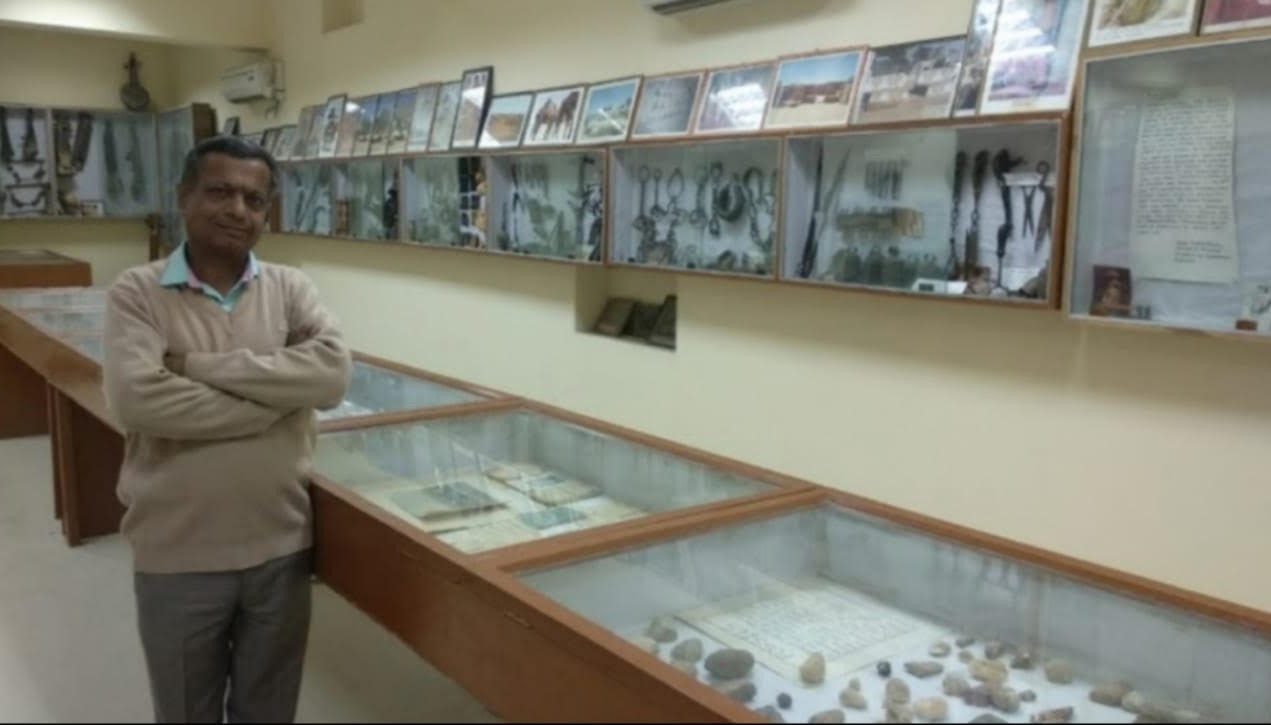
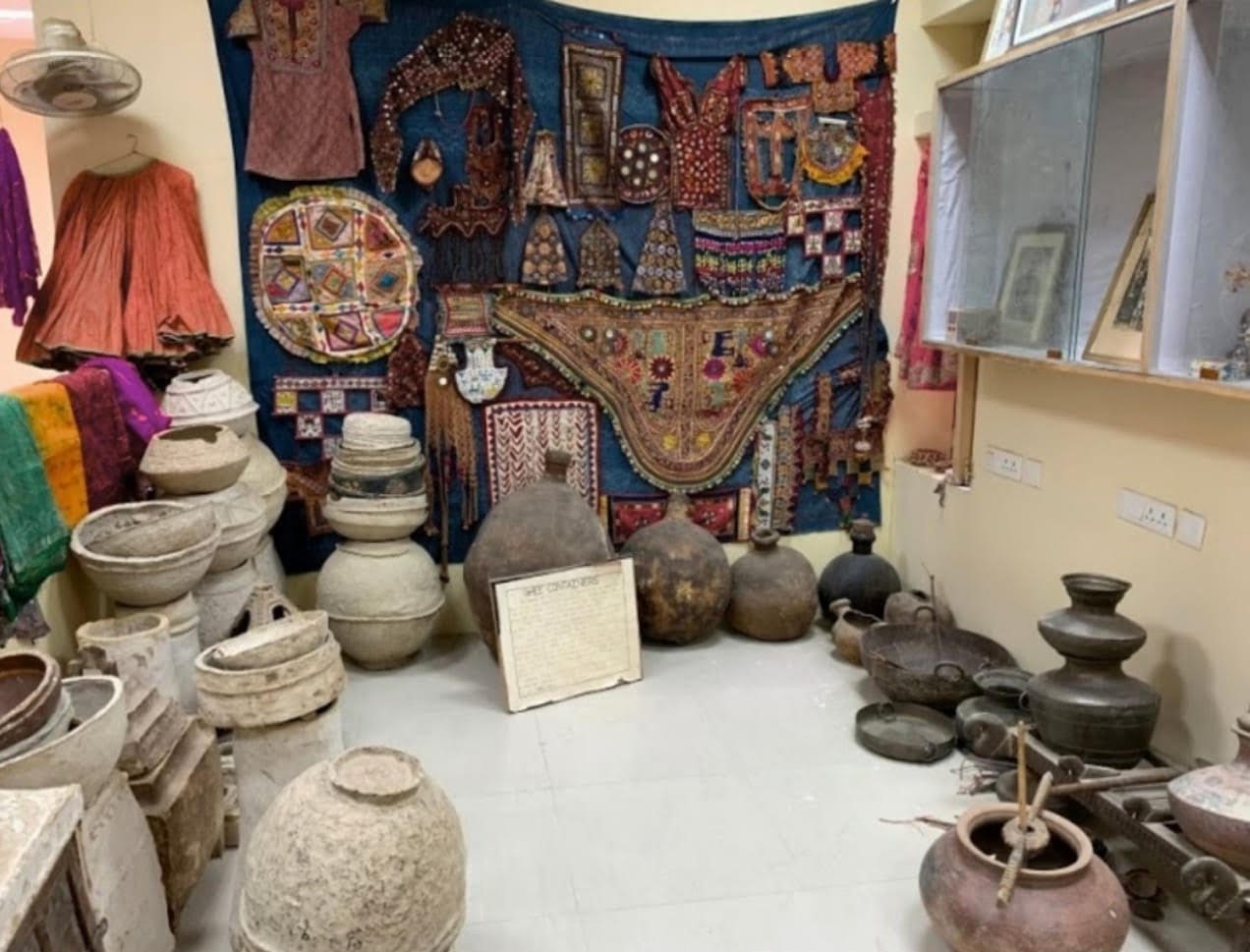
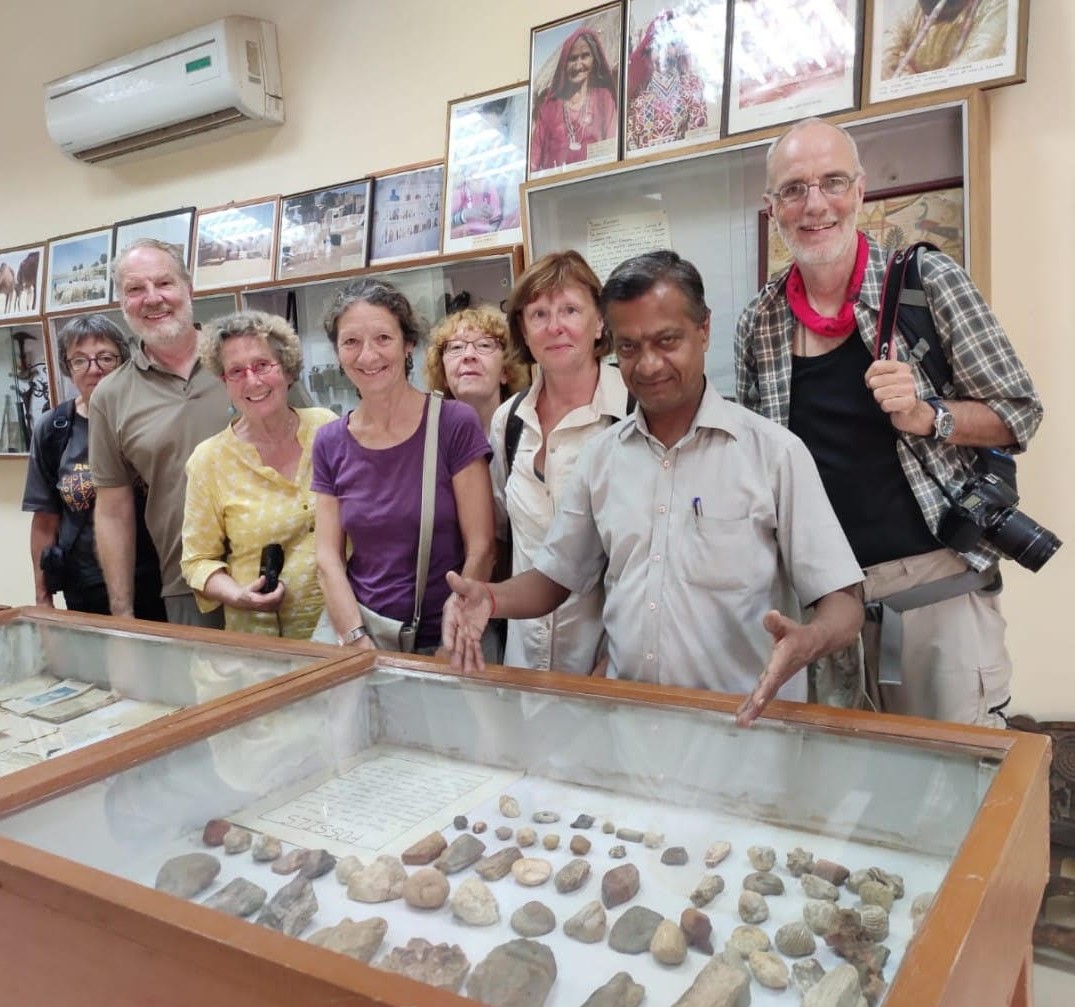
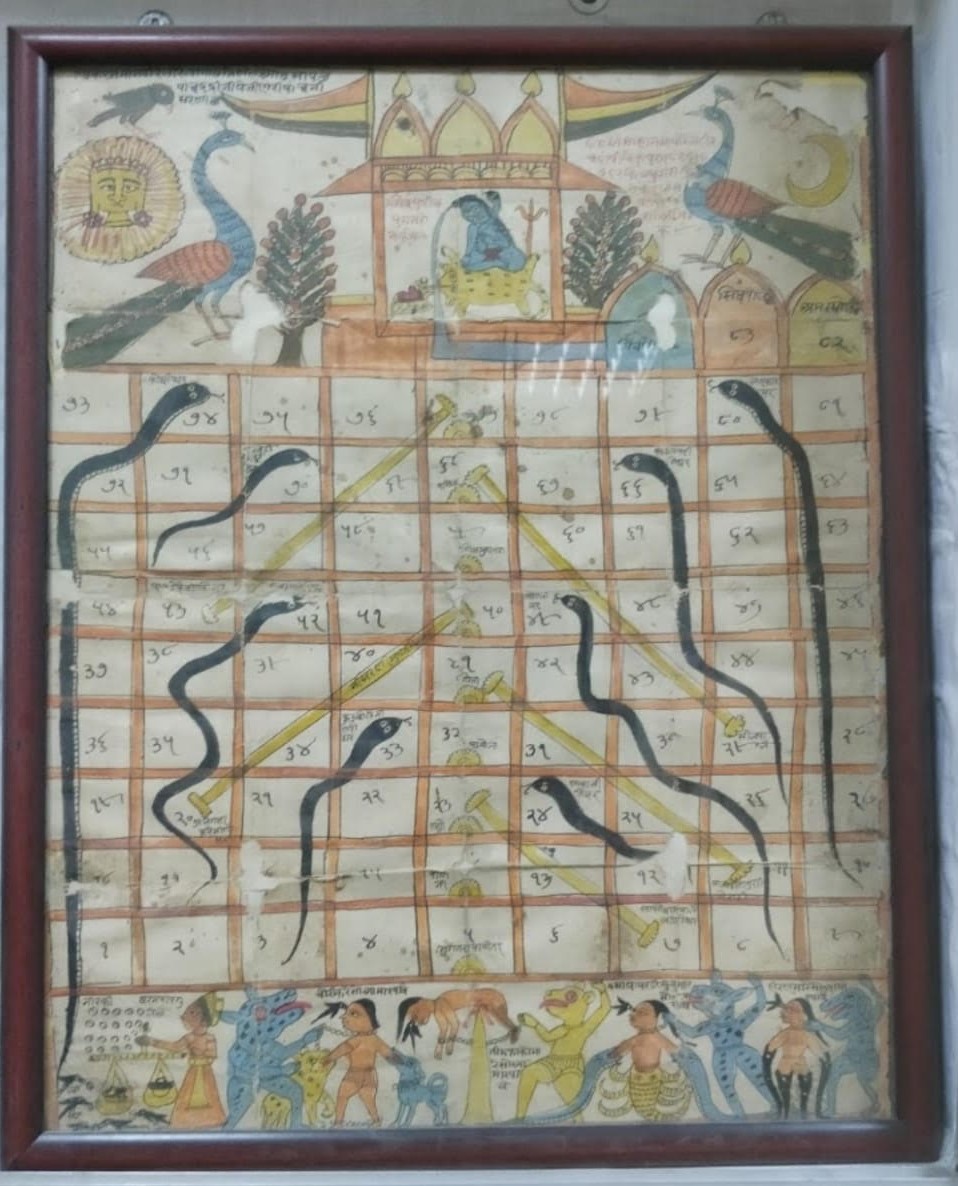
Indians: Rs. 80
Children: Rs. 50
2. The reign of Bhati Rajputs over the princely state of Jaisalmer has been showcased through the display of some original photographs of royalty, information on wars fought by the rulers, handmade weapons along with important state documents, coins, postcards, etc.
3. Opium used to be an essential part of the local culture in the Thar especially during special occasions such as wedding and death ceremonies. Some unique paintings displayed at the museum showcase scenes of opium consumption at important occasions such as weddings and funerals.
